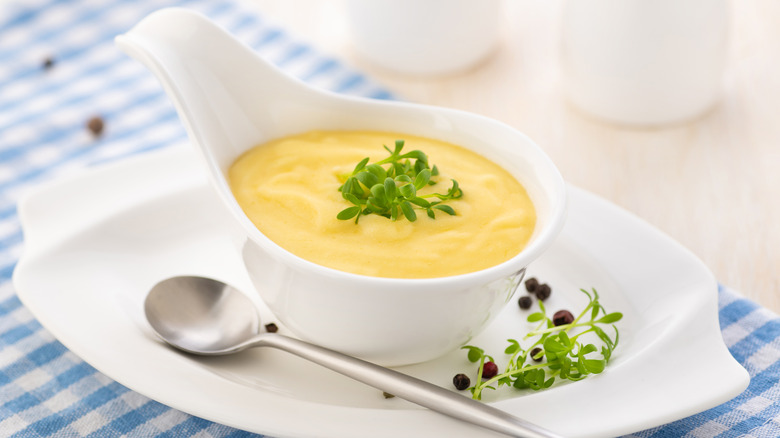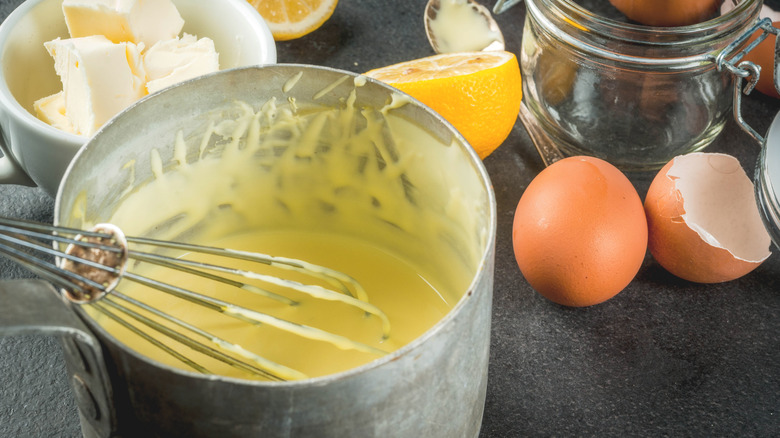The Bacterial Reason You May Not Want To Order Hollandaise At Restaurants
What do eggs Benedict, poached salmon, and asparagus have in common? They all taste great with hollandaise sauce. What is hollandaise sauce? In its simplest form, it's a mixture of egg yolks, butter, and lemon juice, but other hollandaise recipes might add ingredients like salt, pepper, and mustard for extra flavor.
However, hollandaise is both tricky to make and to keep fresh. Preparing hollandaise requires a double boiler method, which can be achieved by having your ingredients in a bowl above a pot of hot water if you don't have an actual double boiler pot. However, keep in mind that the water below should not actually be boiling, or else the sauce could curdle, resulting in a less-than-tasty mess. Needless to say, this cooking method is very finicky and relies on the egg yolks not cooking fully during the process. That said, you may not want to order this dish when dining out. Surprisingly, raw eggs are only part of the reason why you should avoid ordering hollandaise at restaurants.
Restaurant hollandaise sauce could be full of bacteria
Similarly to how a restaurant's mayo can cause food poisoning due to raw eggs, so can a restaurant's hollandaise. That being said, the eggs themselves aren't actually the biggest problem here –- the bacteria they attract are.
On a Reddit thread for chefs and waiters, u/hendukush said hollandaise is "kept hot enough to keep it thick, but not hot enough to cook the eggs, [making it] the perfect breeding ground for bacteria." Another user pointed out that egg yolks start thickening at 160 degrees Fahrenheit and start curdling at 180 degrees Fahrenheit, so hollandaise sauce must be held at temperatures somewhere in between. As you can imagine, that can be difficult to maintain for long stretches of time. The FDA recommends using pasteurized eggs for recipes that call for runny, raw, or other variations of undercooked eggs — like hollandaise sauce.
Other Redditors said they've used pasteurized eggs to make hollandaise sauce, which is great if you want to eat runny eggs at home. However, the fact remains that since you can never be sure when a restaurant's sauce was made, how long it's been sitting out in the open, or how much bacteria has potentially gotten into it, you're better off passing on the hollandaise.

